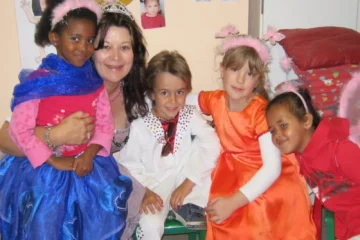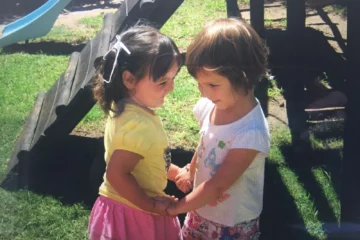I recently had the wonderful opportunity to read Mindset written by Dr. Carol Dweck, who has spent her life studying and teaching on this subject. There were so many insights I gained as a teacher, I thought I would share a few with you all this month.
What is a mindset?
Mindset is the way our brain perceives ourselves and the world. It helps us look at problems and mistakes in a positive way. There are two types of mindsets namely a Fixed mindset and a Growth mindset. A Fixed mindset is Limiting whilst a Growth mindset is Freedom.
The definition of a Fixed Mindset means you believe that intelligence, talent, and other qualities are innate and unchangeable. If you are not good at something, you typically think you never will be good at it. When we have a fixed mindset belief we give up easily and see effort as worthless. Our belief says it doesn’t matter how much effort I put in I’m never going to be able to change or get better at something. This limits opportunities, achievements and motivation as well.
The definition of a Growth Mindset means you believe intelligence and talent can be developed with practice and effort. Believes that a person’s abilities aren’t innate but can be improved through effort, learning, and persistence. A Growth Mindset is all about the attitude with which a person faces challenges how they process failure how they adapt and evolve as a result. In a Growth mindset change and improvement is possible . This in turn motivates us.
The difference between a Fixed mindset and a Growth mindset.
We have both fixed and growth mindsets and they sit on a continuum. Growth is often our natural strength and Fixed mindset our weakness. Listed below are the benefits of a Growth mindset and a list of the limits of a Fixed mindset.
Benefits of the Growth Mindset: Is Freedom
-Desire to learn.
-Failure is an opportunity to grow.
-I can learn to do anything I want.
-Challenges help me to grow.
-My effort and attitude determine my abilities.
-Feedback is constructive.
-I am inspired by the success of others.
-I like to try new things.
-Focus on the process and not the end result.
-Always step out of my comfort zone.
A Fixed mindset is Limiting.
-Desire to look smart.
-Failure is the limit of my ability.
-I’m either good at it or I’m not.
-My abilities are unchanging.
-I don’t like to be challenged.
-I can either do it or I can’t.
-My potential is pre-determined.
-When I’m frustrated I give up.
-Focus on proving yourself.
-Feel threatened by others’ success.
-Feedback and criticism are personal.
-Effort is fruitless.
-I stick to what I know.
How do I know what mindset I have?
By looking at the list above you can see where you have the most character traits. If you have a copy of the mindset book as mentioned above you will be able to take a simple test she gives.
When do kids develop a mindset?
Our children start to form beliefs about themselves from as early as 3 years old. These beliefs about their intelligence, talents, and abilities are known as mindsets, and they influence children’s motivation, self-regulation, and achievement. Children also receive messages from others about their abilities to do different tasks.
Parents can play a role in helping children develop beliefs that will support them through their early years and beyond says Dr. Fiona Boylan Ph.D. Early Childhood Development Lecturer.
Can we change a mindset and how do we change a mindset?
The good news is we can change a fixed mindset to a growth mindset. Mindsets can be developed and taught so they are continually changing throughout our life.
Process praise for children’s efforts encourages children to continue till the task is complete. By saying, I can see you getting better from practicing. This helps the child understand that effort and practice are part of the process of accomplishing tasks.
If a parent has a growth mindset it adds benefits to their own child’s confidence and belief in themselves. Criticism or judgement cause a child not to try or give up or react helplessly. Talking about mistakes or setbacks whilst learning helps children understand this is how we all learn. Learning to keep practising and putting in the effort shows us, how to overcome. Teaching children to ask for help instead of struggling is helpful. Learning new ways of doing things has neurological benefits as neurons in your brain form new pathways and these pathways strengthen with lots of practice. Kids today are to be flexible and adaptable learners. A growth mindset is an asset.
Growth mindset skills:
Here is a few more skills growth mindset gives our children.
Better social-emotional skills to deal with difficult situations.
A High-levels of achievement.
Self-regulation ability.
Confidence.
Problem-solving abilities.
Becoming better at accepting mistakes and setbacks as part of the learning process.
Helping them to become lifelong learners.
A Gift to your child:
-Teach your child to love challenges.
-Teach them to be intrigued by mistakes.
-To embrace and enjoy effort as out of effort put in is a reward.
-To understand the process. Everything takes time to happen. The greatest joy is in the process.
-To seek a plan of action to achieve goals and dreams.
-To keep on learning through life. Have a love for learning.
In Conclusion:
There is so much we can learn about our mindset, our children’s mindset, and those around us. I have just highlighted a few areas. Our children are our legacy. They are our responsibility. A Growth Mindset has a key role to play in helping us fulfil our mission and in helping them fulfil their full potential.


